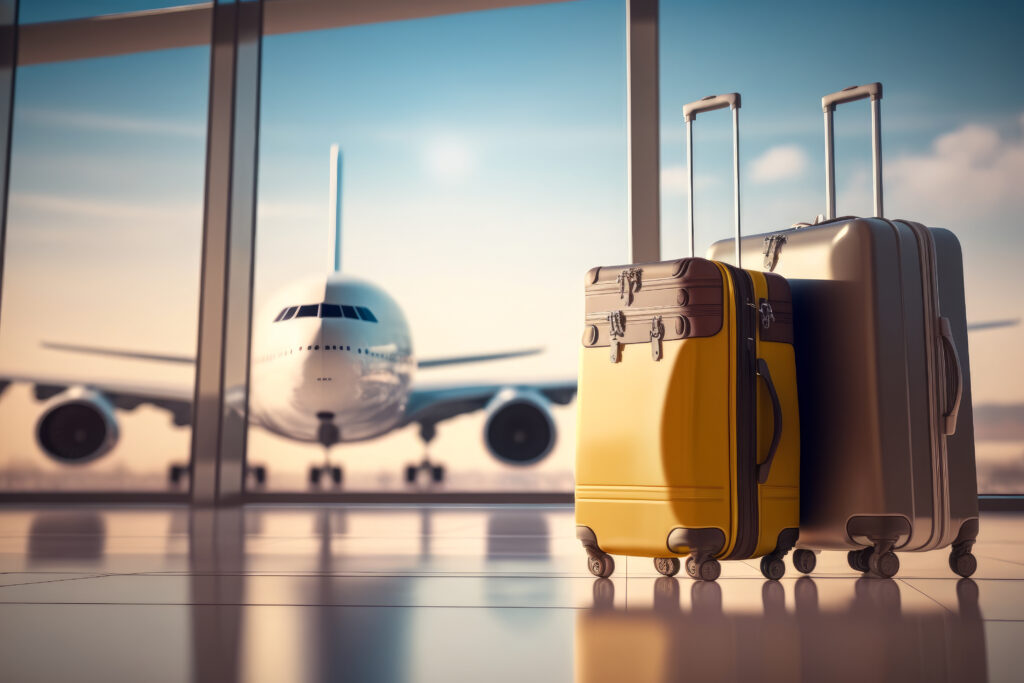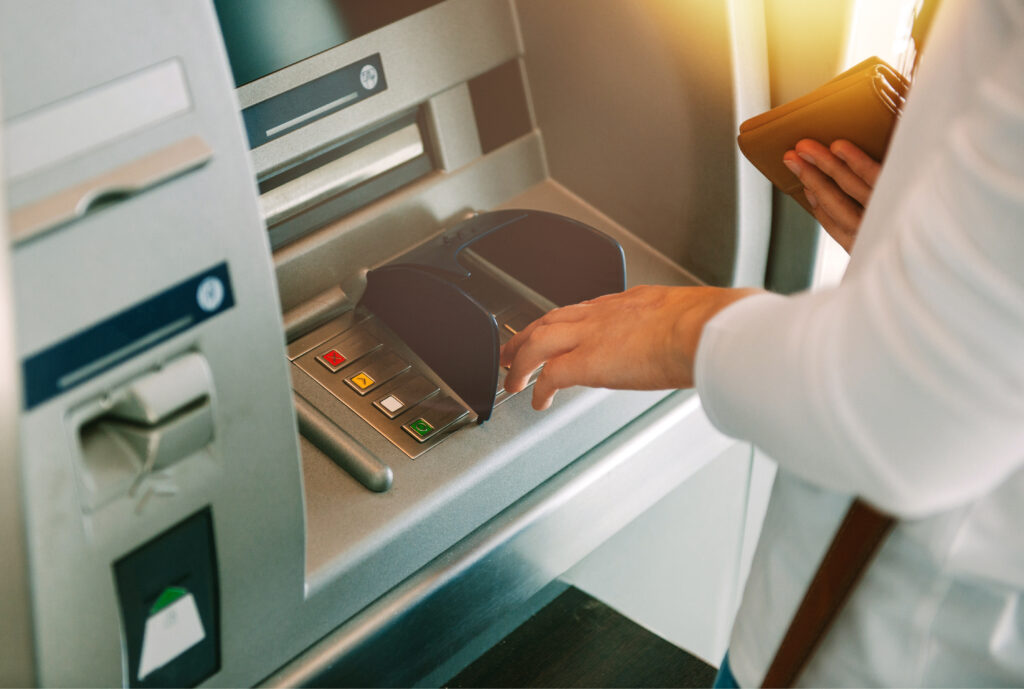Vacation memories may be priceless. But the actual vacation? It’ll cost you a pretty penny (or Euro, or pound …).
And if it seems like it’s even more pricey to travel this year than ever before, you’re not imagining it. Summer vacations are costing 12% more than they were the same time last year according to a travel price index from NerdWallet, a personal finance site.
From car rentals to hotel stays, nearly all categories of travel costs have crept up. One exception: Flights, which are down a teensy bit when compared to last year, according to the analysis from NerdWallet that’s updated monthly.
No matter how carefully you budget for a trip, hidden fees and surprise costs are bound to pop up, adding to the already high cost of traveling. Surprise fees, in fact, have become so problematic that President Joe Biden’s administration is calling on government agencies and companies to be more upfront about total costs and not tack on “junk fees” at checkout.
While murky costs are problematic across all industries, they’re extra prevalent in travel, with resort fees driving up your hotel bill and rental car companies hitting you with extra fees after you’ve turned your car back in at the lot.
Here are five hidden costs that are common when you travel according to experts, plus tips on how to dodge them.
1. Checking a Bag on Your Travel Day

Many people don’t realize that depending on the airline, the cost of checking a bag can vary depending on when you decide to pay, explains Katy Nastro, travel expert with Going.com, formerly Scott’s Cheap Flights.
Take Jetblue, for example. When booking a Blue fare online (regular economy), you can pay $30 for the first bag and $50 for the second, Nastro explains. “Once you check-in or arrive at the airport, the price increases by $5 and $10, respectively,” she says. “Not exorbitant, but annoying enough.”
When it comes to low-cost carriers like Spirit and Frontier, though, the time you choose to pay for a checked bag really matters, Nastro explains.
She breaks it down: If you were to fly Spirit from Baltimore to San Diego in a standard fare with one checked bag, you would pay $40 upon booking, $48 upon online check-in, and a whopping $89 at the airport baggage counter. And not only does the time vary, but for Spirit, the route also matters, as they charge more for various routes.
How to Avoid The Cost: If you need to check a bag, minimize costs and pay upon booking, Nastro says.
Another option that’s a bit of a gamble: If you have a carry-on-sized bag and would rather not lug it through your connections, try bringing it through security and volunteer to check at the gate once asked, Nastro says.
“Many flights these days are asking for volunteers to check their bags before boarding due to lack of overhead bin space,” she says. “The odds are your gate agent will call for volunteers, which means you get to check your bag for the best price – for free.”
2. Resort Fees

Resort fees are mandatory fees that are often not included in a room rate, explains Nate Hake, the founder and Editor in Chief at Travel Lemming, an online travel guide. They’re supposedly meant to cover the cost of access to resort facilities like pools, gyms, the in-room safe and other amenities, Hake says, and you’ve got to pay these fees even if you don’t plan on going for a swim or never step foot on the treadmill.
“The fees are often not well disclosed during booking, but ‘mandatory’ regardless of whether or not you use the services,” he says. “I once paid a $35 per night resort fee in Las Vegas, which was nearly half the cost of the room itself.”
How to Avoid the Cost: Here’s an instance where reading the fine print will help you budget better.
“You can also just Google the name of the hotel plus ‘resort fee’ and that will usually let you know what to expect,” Hake says.
You can also sign up for resort loyalty programs, which will sometimes extend perks like free early check-in and parking.
Hake also points out if a hotel is charging exorbitant resort fees, they’ll probably try to nickel and dime you in other ways. (Think: A bottle of water from the mini fridge, expensive parking and the like.)
3. Foreign Transaction Fees

When you swipe your credit card outside of your home country, you’re subject to a foreign transaction fee, says Sky Ariella, a senior writer for Travel Lemming and a full-time traveler. The transaction fees are usually in the neighborhood of 1% to 3% of the amount you’re charging. For example: If you were to spend $1,000 on your credit card, you’d be hit with $10 to $30 in foreign transaction fees depending on your credit card company’s fees.
How to Avoid the Cost: At the very least, check with your credit card company before you travel to understand their foreign transaction fees. Better yet, Ariella suggests, look into a travel credit card that doesn’t charge foreign transaction fees. These no-transaction fee credit cards often have annual fees, so you’ll need to determine whether the benefits will outweigh the costs.
4. Dynamic Currency Conversion (“DCC”) Fees

Traveling internationally? Also watch out for the extra ATM fees, specifically the Dynamic Currency Conversion (or DCC for short) fees, cautions Hake. These fees are charged by ATMs and credit card terminals for the supposed “convenience” of paying in your home currency, Hake points out. Combined with the foreign transaction fee, these charges can amount to 3% of the amount you’re withdrawing (or even more).
You may also come across a DCC fee option when you’re using a credit or debit card to pay at a restaurant.
How to Avoid the Cost: This is a pretty easy fee to avoid! Always select “decline conversion” at the ATM, Hake says.
5. Gas Fees from Rental Car Companies

When you rent a car, you’ve got a few options for filling up the gas tank.
The first, most economic solution requires you to fill the tank on your own so that the fuel gauge is at the same level it was at when you drove it off the lot.
The second option most rental car companies offer is a “pre-paid fuel” fee that requires you to pay for a full tank of gas upfront. In turn, the rental car company will fill up the tank when you drop the car off, and you don’t have to worry about making a gas station stop as you’re headed to the airport. Most times this is advertised as being comparable to local gas prices, however it’s not necessarily a good deal because you’re unlikely to roll into the rental car return area with the gas tank on “E” and rental car companies won’t offer a refund if they only need to fill up, say, half the tank.
The most expensive option? You don’t fill up the tank before you return the car and you don’t pre-purchase the fuel. Rental car companies, in this instance, will charge you a hefty premium to fill up the tank. Unfortunately, the cost-per-gallon rate isn’t usually something they’ll share on their websites because it can vary by region and fluctuate with gas prices. However, you can get an estimate at the counter.
A personal anecdote that I was able to find by going through my receipts: I returned a rental car last year to a major agency in Michigan and was charged $10.02 per gallon. (It was an erroneous charge and I was able to get it reversed by providing a receipt showing I had filled up the tank at a gas station within a mile of the rental car return lot).
How to Avoid the Cost: The best option is to fill up your tank on your own. Research which gas stations are close to the rental car return spot and make sure their pumps are open when you go to drop off your car. (I.e. you don’t want to be driving around at 4 a.m. looking for an open gas station before an early-morning flight).
More Travel:
- When to book to get the best price on an international flight
- How to get your passport faster for summer travel
- Expedia’s new rewards program could help you save on travel
Avoid these 5 hidden travel costs to save money on your next trip by Brittany Anas originally appeared on Don't Waste Your Money
This story originally appeared on Don't Waste Your Money. Checkout Don't Waste Your Money for product reviews and other great ideas to save and make money.


